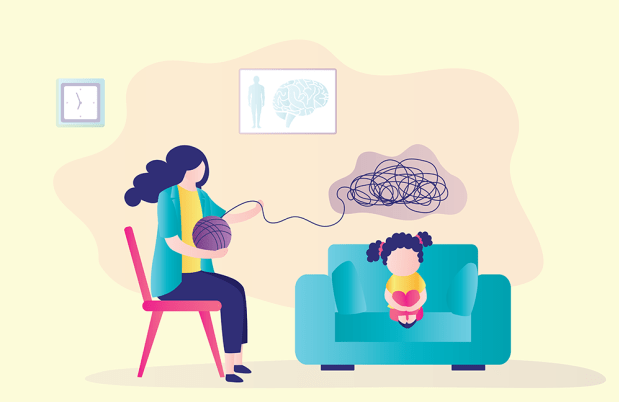Helping Your Patients Face Their Fears With Exposure Therapy
Available with English captions and subtitles in Spanish.
Exposure and response prevention therapy (ERP) is the most effective behavioral treatment for patients with OCD. When done well, it helps patients break patterns of avoidance and fears. But how do you know which variations will work for your patients? How should you pace their ERP journey? And what do you do if it’s unsuccessful?
Audience Questions
Elizabeth McIngvale, PhD, LCSW, helps clinicians navigate the nuances and efficacy of ERP, dispels myths about the treatment, and answers attendee questions about this intervention.
- A 9-year-old patient is having sexual obsessions about seeing his mother naked and staring at her private parts. He also has obsessions about his grandmother dying. What kinds of exposures would be effective and appropriate, and how do I engage him in this process as he is very embarrassed about them?
- Is ERP a one-and-done form of therapy? Or is this something that you have to go through as a refresher every so often?
- If we care for a person who is struggling with OCD, should we engage in ERP as well? Is it useful for us to be a bystander or witness if we’re in a caretaker role?
- Is ERP something you can do at home without a licensed professional? Is this a thing your friend, loved one, etc. could help you with—without a psychologist?
- How would we initiate the conversation with a loved one to suggest that they may benefit from ERP?
- What do you do when someone isn’t habituating and is staying “bothered” at the same levels of ERP for months? What do we do when someone is resistant to moving onto a new ERP?
- As a therapist, I always feel awkward during sessions while doing ERP with someone. What should I do right before, during, and after exposures?
- My patient has contamination fears, including fear of being around people who sneeze or throw up in front of her. How would we do exposures?
- What if you are a clinician and a family member? Can you still be a clinician for your relative using ERP?
- My 18-year-old son struggles with intrusive thoughts. He is currently in treatment at a residential center practicing ERP. How can we support him as a family when he gets home? And how can we help find a proper practitioner after—which is more challenging during the pandemic?
- I have a college-age patient whose OCD is fixated on her trying to analyze whether she is making up her OCD. Some of the compulsions have been looking up things online and testing out different variables. We have been having a hard time coming up with exposures for her to do that stick. Do you have any suggestions?
- If a clinician has patients whose thoughts don’t seem to habituate during even prolonged ERP sessions, would you suggest they move to an expectancy violation model? An example would be where the clinician says, “You were able to sustain that for 90 minutes and nothing bad happened, so let’s repeat that exposure in that model?”
- What would you do when OCD interferes with ERP? For example, a patient who has obsessions and related mental rituals and decides on an ERP, only to have OCD say to her, “That’s not enough, you need to do something more extreme?”
- I have a patient who does exposures and reports she is “bored,” but that her anxiety remains high. Any thoughts about what this might indicate? How do I help re-educate her self-perception about her own anxiety?
- Can you provide some background into what scripts and imaginal statements are?
- Is there a specific way to design a script in terms of content or process of use that would make a script more beneficial?
- What role does medication play in OCD treatment—specifically, when discussing exposures?
- Can you talk about obsessions that start in one area—for example, contamination—that move into a different obsession? Is this common, or is it more that the core belief wasn’t properly identified and addressed?
- What is your clinical opinion of the use of TMS in conjunction with ERP in OCD treatment? And can you provide a little additional information into what TMS is?
- I have OCD and my experience with ERP has been so profound I am in the process of applying to master’s in mental health counseling programs so I can become a clinician and help others with OCD and anxiety. As a clinician with OCD, does your OCD ever interfere with your ability to successfully treat your patients? And if so, what strategies can you share to manage any issues that might arise?
- Can you provide more insight into how ERP works with mental compulsions?
- Any suggestions when working through hierarchy where obsessions and compulsions are changing but are still as intense? First it was a fear of handwashing, work through handwashing, and then the focus changed to something else like fear of vomiting.
- Could you talk a little more about leaning in? Does that work involve acceptance-based interventions? If so, how does that work?
- I think it was Abramowitz who said this year at IOCDF that doing random-level of exposures may have better results. Could you speak to that?
- What resources do you recommend for connecting middle school- to high school-age kids who experience OCD with peers who have a similar experience to them?
- For a clinician not trained in ERP, would teaching patients mindfulness and acceptance be good preparation for ERP if they are waiting for an ERP program, ERP trained therapist, or are on a waitlist for a program?
- What do you do if you have patients that are resistant to leaning in and also not actively practicing between sessions?
- If someone is looking for an ERP clinician in their area, what’s the best way to go about finding one? How do you start the conversation to see if the clinician is trained in ERP?
- Can you talk a little about the correlation between eating disorders and OCD?
- As the parent of someone in an OCD program, how can I help them?
- Can you just have intrusive thoughts without a compulsion to act?
- If someone is having just a mental compulsion, how do you help stop the cycle?
The information discussed is intended to be educational and should not be used as a substitute for guidance provided by your health care provider. Please consult with your treatment team before making any changes to your care plan.
Resources
During the session, Dr. McIngvale discussed these resources:
- International OCD Foundation (IOCDF)
- Freedom From OCD – book by Jonathan Grayson, PhD
- Getting Over OCD – workbook by Jonathan S. Abramowitz, PhD
About Dr. McIngvale
Elizabeth McIngvale, PhD, LCSW, is the director of the OCD Institute of Texas, founder of Peace of Mind, a nonprofit foundation dedicated to OCD, and manager of OCDChallenge.org, a self-help website for OCD. Dr. McIngvale was the first-ever national spokesperson for the IOCDF and now serves as a board member. She was diagnosed with OCD at age 12 and underwent both inpatient and outpatient therapy.
Dr. McIngvale engages in clinical work, research, and advocacy aimed at improving OCD treatment and access to care. Her life goal is to make a difference in the lives of those with OCD.
More Webinars
It’s important to think about ways to manage your mental health. McLean is committed to providing mental health and self-care resources for all who may need them. You and your family may find these strategies from McLean experts helpful to feel mentally balanced in your everyday lives.
Sign up now for the next webinar in our Mental Health Webinar Series.



